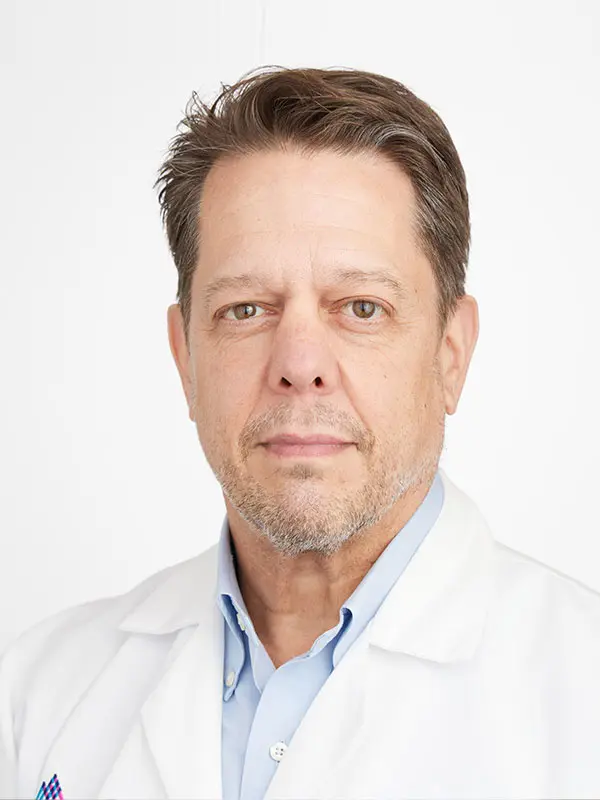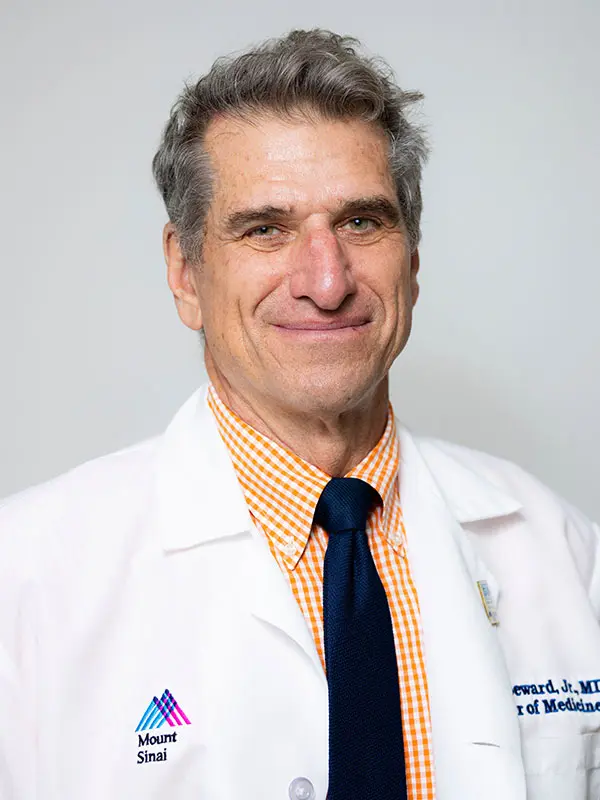Aware of its essential role in meeting the medical needs of communities on Manhattan’s West Side, Mount Sinai Health System has worked diligently in recent years to ensure that residents have access to the city’s leading specialists and most advanced clinical services and programs, anchored by the health care hubs of Mount Sinai Morningside and Mount Sinai West.
That effort has met with remarkable success, resulting in a 60 percent increase in Department of Medicine faculty since 2015 and the strengthening of such vitally needed services as primary care and lung cancer detection and screening. Also included are the development of centers of excellence for patients with pancreatic cancer and gastrointestinal physiology and motility disorders.
“Every medical specialty in our space has experienced significant growth in terms of faculty and the level of expertise the public can readily tap into,” says Samuel Seward Jr., MD, Chair of Medicine for Mount Sinai Morningside and Mount Sinai West. “In primary care alone, we’ve hired, over the past two years, 12 new full-time physicians and have transformed this clinical program into one of the largest of its kind within the Mount Sinai Health System, and within the city. And over the last few months, we’ve added an urgent care center as a way of growing the breadth and depth of our primary care model to include just-in-time care for patients.”
No initiative better encapsulates Mount Sinai’s growing commitment to residents on the city’s West Side than the Incidental Lung Nodule Program. Launched recently at Mount Sinai Morningside, this unique and ambitious effort is harnessing the expertise of the hospital’s pulmonary specialists and primary care doctors in the Division of General Internal Medicine to establish the hospital as a screening hub for diagnosing and monitoring lung nodules identified in patients who have undergone CT scans for conditions such as coronary disease, chest pain, or pulmonary embolism.
“We want to be sure we’re finding lung cancers both when we’re specifically looking for them and when we’re not, through our Incidental Lung Nodule Program,” says Javier Zulueta, MD, Professor of Medicine and Chief of Pulmonary, Critical Care and Sleep Medicine at Mount Sinai Morningside, who has overseen and championed the program at the hospital. Once an incidental nodule is detected through a CT scan, he explains, specially designed software alerts the provider who ordered the image and the patient, urging follow-up with a hospital-based pulmonologist.
Adds Dr. Seward: “Because patients are often asymptomatic in the early stages of lung cancer, this program has enormous potential to save many lives through quick intervention by our pulmonary specialists. In just a few months we’ve already captured hundreds of patients who are following up based on the findings of our radiologists.”
“We’ve definitely upped our game to meet the needs of patients by putting in place the finest faculty and highest-quality medical care that’s accessible to them.”
- Samuel Seward, Jr., MD
Timely intervention is also critical in treating patients with pancreatic and biliary cancers. For this reason, the Department of Medicine’s decision to move its Center of Excellence for Pancreatic Cancer to Mount Sinai West has proven to be a huge asset to residents in surrounding communities. The program’s leadership team includes Edward Lung, MD, MPH, Professor of Medicine and Director of Endoscopy for the Division of Gastroenterology at Mount Sinai West and Mount Sinai Morningside. A widely known expert in advanced endoscopy, Dr. Lung ensures that every patient who arrives at the Center is surrounded by a multidisciplinary team that’s able to offer a wide range of personalized treatment options and clinical trials.
Mount Sinai’s rapid growth on the West Side is further showcased in its Center for Gastrointestinal Physiology and Motility, a highly specialized unit that has added within the past two years six faculty members, including experts in motility disorders throughout the GI tract and in pelvic floor dysfunction in women. The Center’s new Director is a nationally recognized expert in the field, Daniela Jodorkovsky, MD, Associate Professor of Medicine (Gastroenterology). Thanks to her group’s extraordinary growth and cutting-edge platform for diagnosing and treating both upper and lower GI motility disorders, it is now poised to be an international leader in that space.
“Rounding out our many clinical initiatives is a large residency training program that serves as a robust pipeline for the talent and services we’re constantly adding to our West Side operations,” notes Dr. Seward. “We’ve definitely upped our game to meet the needs of patients by putting in place the finest faculty and highest-quality medical care that’s accessible to them, both as inpatients and, increasingly, at convenient sites within their communities.”
Featured

Javier Zulueta, MD
Professor of Medicine (Pulmonary, Critical Care and Sleep Medicine)

Daniela Jodorkovsky, MD
Associate Professor of Medicine (Gastroenterology)

Samuel Seward, MD
Professor of Medicine (General Internal Medicine); Chair, Department of Medicine, Mount Sinai Morningside and Mount Sinai West
